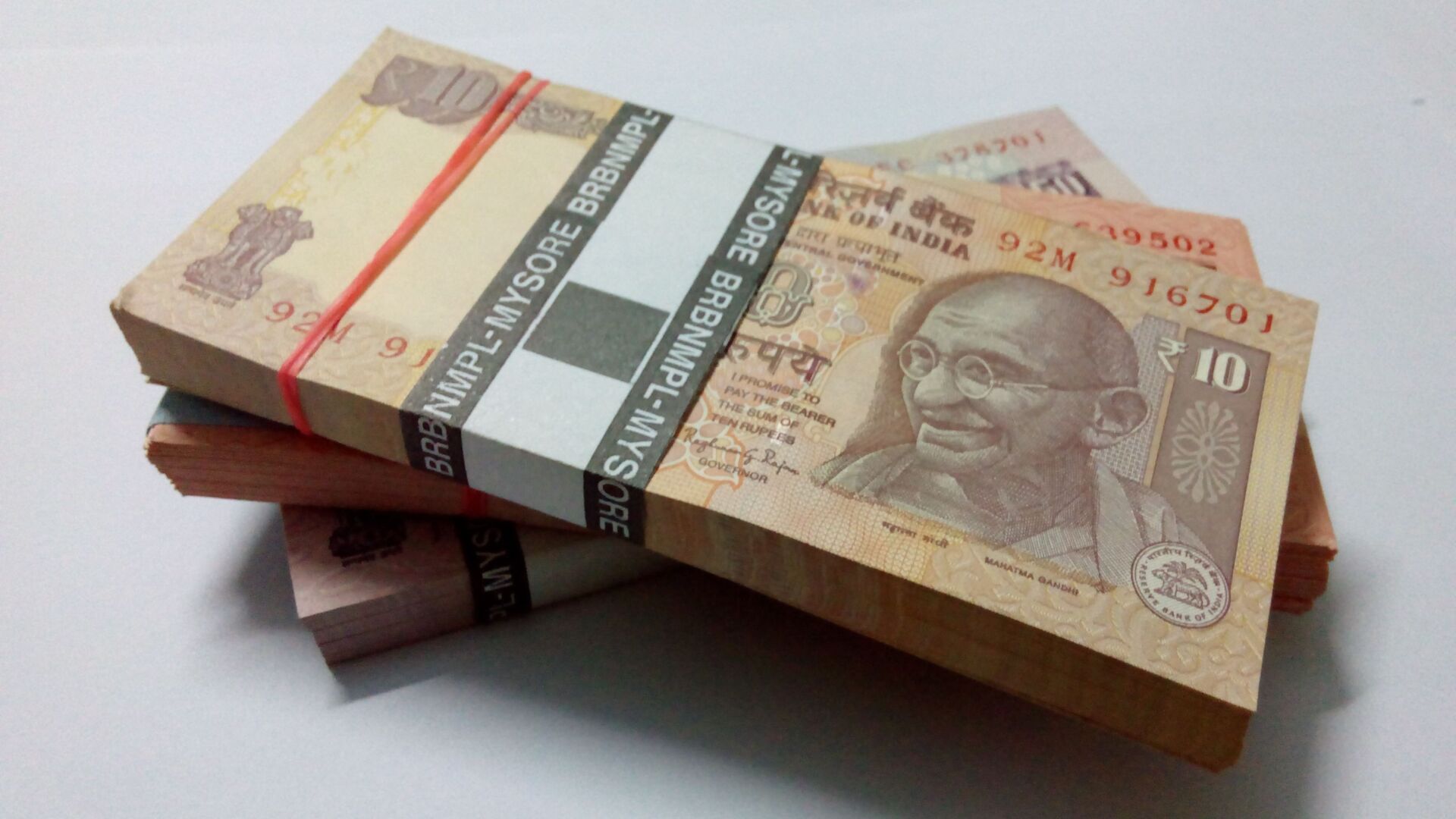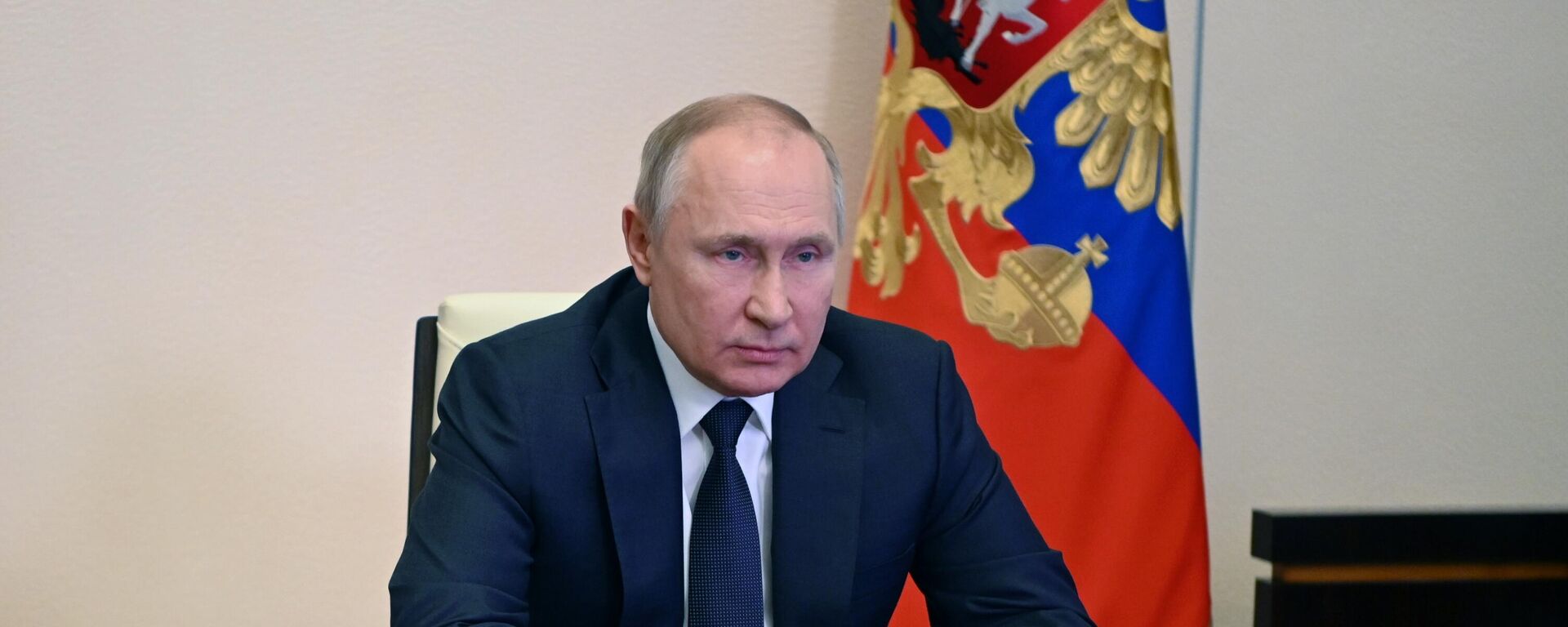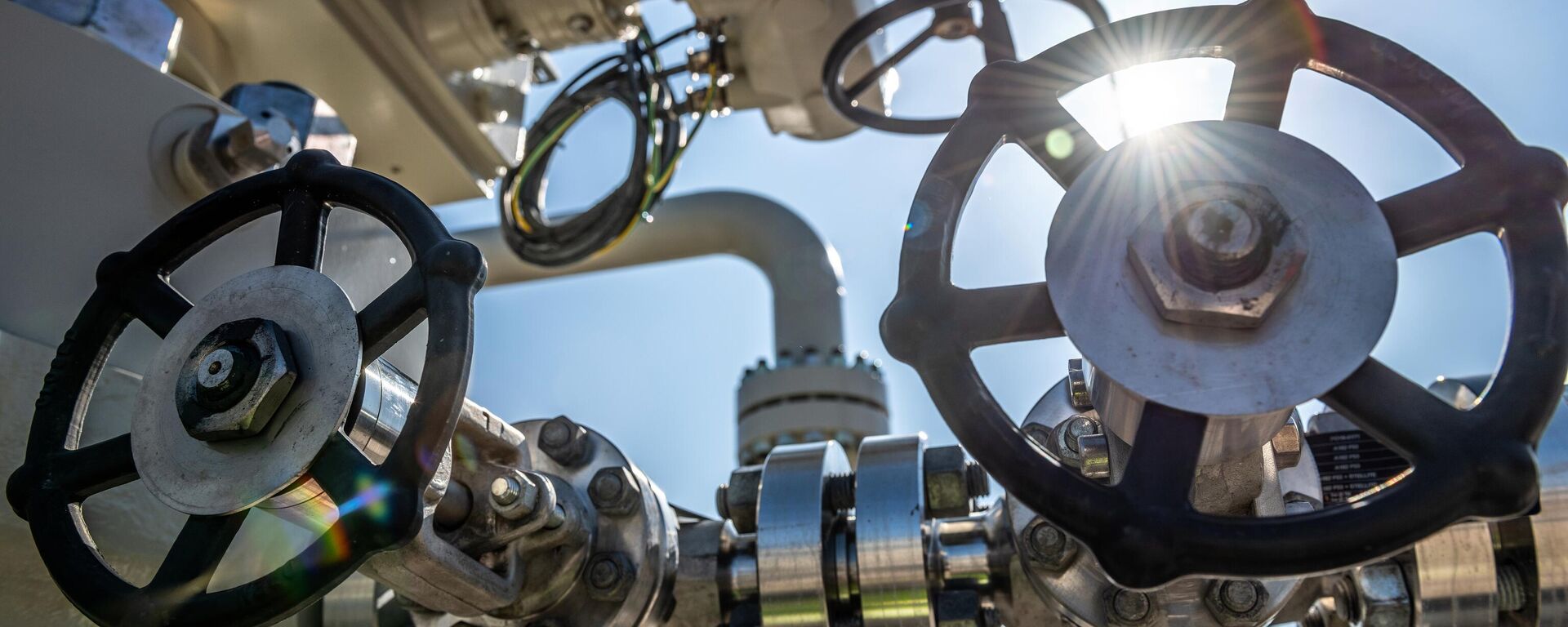https://sputnikglobe.com/20220307/indian-economist-calls-for-rupee-rouble-trade-to-bypass-western-sanctions-over-ukraine-1093655329.html
Indian Economist Calls For Rupee-Rouble Trade to Bypass Western Sanctions Over Ukraine
Indian Economist Calls For Rupee-Rouble Trade to Bypass Western Sanctions Over Ukraine
Sputnik International
Bilateral trade between New Delhi and Moscow stood at $8.1 billion for 2020 to 21, according to official data. Both countries have set a trade target of $30... 07.03.2022, Sputnik International
2022-03-07T13:22+0000
2022-03-07T13:22+0000
2022-03-07T13:22+0000
russia-nato row on european security
rosneft
russia
energy prices
crude
ukraine
rupee
rouble
cryptocurrency
https://cdn1.img.sputnikglobe.com/img/07e5/03/13/1082393688_0:0:3640:2048_1920x0_80_0_0_41505b64064425950b4473192feaa2c3.jpg
Dr Ashwani Mahajan, an Indian economist and co-convenor of advocacy group Swadeshi Jagran Manch (SJM), is backing an idea to set up a Rupee-Rouble currency market to bypass the western economic sanctions' effect against Moscow since military operations in Ukraine.The SJM is the ideological ally of the Rashtriya Swayamsevak Sangh (RSS), the parental organisation of India's ruling Bharatiya Janata Party (BJP).Mahajan's believes that India should do what is in its “national interest” without “fear of any pressure” from western countries.The US, the European Union (EU) and several other western nations have imposed economic sanctions against Russian financial institutions, including the Central Bank, as well as its political leadership because of Moscow’s military operations in Ukraine. Top Russian banks have also been excluded from the Society for Worldwide Interbank Financial Telecommunication (SWIFT) network, a financial intermediary that helps execute international transactions.India's Foreign Secretary Harsh Vardhan Shringla said last month that the government was “studying” the sanctions.The collapse of the USSR, New Delhi’s major trading partner at the time, was one of the reasons for the economic crisis.Mahajan appreciates the fact that, so far, the Indian government has rejected “western pressure” and maintained “steady trade ties” with Moscow.India has consistently abstained from voting against several western-backed resolutions labelling Russia the “aggressor” at the United Nations (UN), since the Russian military operations began on 24 February.New Delhi says it is mindful of the “legitimate security interests” of all sides. In several calls with his Russian and Ukrainian counterparts - respectively President Vladimir Putin and President Vladimir Zelensky - India's Prime Minister Narendra Modi has called for a “cessation of hostilities” and a peaceful resolution of the crisis.The Indian government’s neutral stance is appreciated by Moscow, but has put India at odds with the US and its other western partners.Donald Lu, who heads the US state department's Bureau of South and Central Asian Affairs, said at a senate foreign relations committee hearing last week: "Let me say that all of us have been working to urge India to take a clear position, a position opposed to Russia's actions. But what have we seen so far? We have seen a number of abstentions."India, Russia Should Explore Other Payment Mechanisms, Deepen Energy Ties, says MahajanMahajan believes that the Indian and Russian governments should continue exploring “other alternative sources of trading mechanisms, including the use of digital payments”.Indian Finance Minister Nirmala Sitharaman said in her annual budget presentation last month that the government would introduce a “blockchain-based digital currency” later in the year, describing it as a “cheap and efficient” currency management system.Mahajan also favours linking India’s domestically grown payment system United Payments Interface (UPI) to Russia’s Mir system, a SWIFT-like electronic system introduced in 2017. The UPI, on its part, is managed by the Reserve Bank of India (RBI) - India's central bank - and has a base of around 150 million users.Mahajan also urges the Indian government to boost its energy ties with Russian enterprises, as he refers to reports that Rosneft has offered cheaper crude to Indian companies in spite of high prices.Both Brent Crude and West Texas Intermediary (WTI) - the major crude price benchmarks - rose to their highest levels since 2008 on Sunday, on the back of fears that the US and European allies would ban Russian oil from the market.
https://sputnikglobe.com/20220305/putin-russia-tried-to-peacefully-resolve-donbass-conflict-but-kiev-organised-a-blockade-1093614887.html
https://sputnikglobe.com/20220306/gas-prices-why-eu-and-uk-sanctions-game-will-see-no-winners-1093621488.html
ukraine
Sputnik International
feedback@sputniknews.com
+74956456601
MIA „Rosiya Segodnya“
2022
News
en_EN
Sputnik International
feedback@sputniknews.com
+74956456601
MIA „Rosiya Segodnya“
Sputnik International
feedback@sputniknews.com
+74956456601
MIA „Rosiya Segodnya“
rosneft, energy prices, crude, ukraine, rupee, rouble, cryptocurrency
rosneft, energy prices, crude, ukraine, rupee, rouble, cryptocurrency
Indian Economist Calls For Rupee-Rouble Trade to Bypass Western Sanctions Over Ukraine
Bilateral trade between New Delhi and Moscow stood at $8.1 billion for 2020 to 21, according to official data. Both countries have set a trade target of $30 billion by 2025. Reportedly, Indian exporters are awaiting payments of about $400 million which have been held up because of western sanctions against Moscow.
Dr Ashwani Mahajan, an Indian economist and co-convenor of advocacy group Swadeshi Jagran Manch (SJM), is backing an idea to set up a Rupee-Rouble currency market to bypass the western economic sanctions' effect against Moscow since
military operations in Ukraine.
The SJM is the ideological ally of the Rashtriya Swayamsevak Sangh (RSS), the parental organisation of India's ruling Bharatiya Janata Party (BJP).
“We have to find ways and means to carry out what we are doing, without being hassled by anyone in the world,” Mahajan, a professor of Economics at Delhi University, told Sputnik.
Mahajan's believes that India should do what is in its “national interest” without “fear of any pressure” from western countries.
"India and Russia can weigh the cost-benefit analysis of the Rupee-Rouble trading system and reach an agreement that serves both countries’ national interests,” Mahajan said.
The US, the European Union (EU) and several other western nations have imposed economic sanctions against Russian financial institutions, including the Central Bank, as well as its political leadership because of Moscow’s military operations in Ukraine.
Top Russian banks have also been excluded from the
Society for Worldwide Interbank Financial Telecommunication (SWIFT) network, a financial intermediary that helps execute international transactions.
India's Foreign Secretary Harsh Vardhan Shringla said last month that the government was “studying” the sanctions.
Mahajan recalled that New Delhi and Moscow had traded in their domestic currencies until 1991, when the balance of payment crisis in India blew up and forced the country to liberalise its economy, in line with terms proposed by Bretton Woods institutions (the World Bank and the International Monetary Fund) which came to New Delhi’s rescue.
The collapse of the USSR, New Delhi’s major trading partner at the time, was one of the reasons for the economic crisis.
Mahajan appreciates the fact that, so far, the Indian government has rejected “western pressure” and maintained “steady trade ties” with Moscow.
“The SJM fully backs New Delhi’s stance of staying neutral as far as the Russia-Ukraine conflict is concerned. Yet, we profess that the interests of India must always be kept in mind to explore mutual areas of engagement,” Mahajan emphasises.
India has consistently abstained from voting against several western-backed resolutions labelling Russia the “aggressor” at the United Nations (UN), since the Russian military operations began on 24 February.
New Delhi says it is mindful of the “legitimate security interests” of all sides.
In several calls with his Russian and Ukrainian counterparts - respectively President Vladimir Putin and President Vladimir Zelensky - India's Prime Minister Narendra Modi has called for a “cessation of hostilities” and a peaceful resolution of the crisis.
The Indian government’s neutral stance is
appreciated by Moscow, but has put India at odds with the US and its other western partners.
Donald Lu, who heads the US state department's Bureau of South and Central Asian Affairs, said at a senate foreign relations committee hearing
last week: "Let me say that all of us have been working to urge India to take a clear position, a position opposed to Russia's actions. But what have we seen so far? We have seen a number of abstentions."
India, Russia Should Explore Other Payment Mechanisms, Deepen Energy Ties, says Mahajan
Mahajan believes that the Indian and Russian governments should
continue exploring “other alternative sources of trading mechanisms, including the use of digital payments”.
“The Central Bank Digital Currency (CBDC) proposed by the Modi government could serve as another source of payment,” he reckons.
Indian Finance Minister Nirmala Sitharaman said in her annual budget presentation last month that the government would introduce a “blockchain-based digital currency” later in the year, describing it as a “cheap and efficient” currency management system.
Mahajan also favours linking India’s domestically grown payment system United Payments Interface (UPI) to Russia’s Mir system, a SWIFT-like electronic system introduced in 2017.
The UPI, on its part, is managed by the Reserve Bank of India (RBI) - India's central bank - and has a base of around 150 million users.
“Linking the two payment systems could also help the governments of both the countries to carry on trade with minimal fears of economic retaliation,” he feels.
Mahajan also urges the Indian government to boost its energy ties with Russian enterprises, as he refers to reports that Rosneft has offered cheaper crude to Indian companies in spite of high prices.
“In the interest of India, we should quickly grab this opportunity,” Mahajan said.
Both Brent Crude and West Texas Intermediary (WTI) - the major crude price benchmarks - rose to their highest levels since 2008 on Sunday, on the back of fears that the US and European allies would ban Russian oil from the market.






